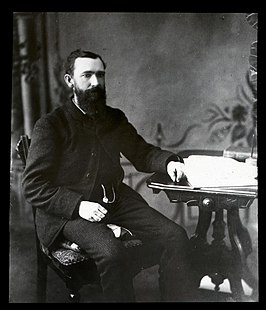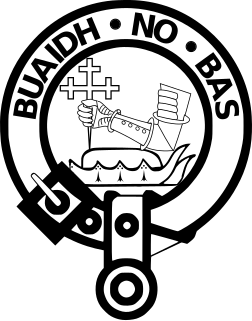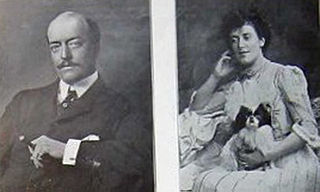James Henry Miller, better known by his stage name Ewan MacColl, was a British folk singer, songwriter, labour activist and actor.
Fergus Mór mac Eirc was a legendary king of Dál Riata. He was the son of Erc of Dalriada.
"Scarborough Fair" is a traditional English ballad. The song lists a number of impossible tasks given to a former lover who lives in Scarborough, North Yorkshire. Traditionally, the song had a wide range of tunes and lyrics, but one particular version gained popularity and was recorded by a number of musicians in the twentieth century, most notable Simon & Garfunkel.

Scottish folk music is music that uses forms that are identified as part of the Scottish musical tradition. There is evidence that there was a flourishing culture of popular music in Scotland during the late Middle Ages, but the only song with a melody to survive from this period is the "Pleugh Song". After the Reformation, the secular popular tradition of music continued, despite attempts by the Kirk, particularly in the Lowlands, to suppress dancing and events like penny weddings. The first clear reference to the use of the Highland bagpipes mentions their use at the Battle of Pinkie Cleugh in 1547. The Highlands in the early seventeenth century saw the development of piping families including the MacCrimmons, MacArthurs, MacGregors and the Mackays of Gairloch. There is also evidence of adoption of the fiddle in the Highlands. Well-known musicians included the fiddler Pattie Birnie and the piper Habbie Simpson. This tradition continued into the nineteenth century, with major figures such as the fiddlers Neil and his son Nathaniel Gow. There is evidence of ballads from this period. Some may date back to the late Medieval era and deal with events and people that can be traced back as far as the thirteenth century. They remained an oral tradition until they were collected as folk songs in the eighteenth century.

George Murdoch was a Canadian politician, Alberta pioneer, saddle-maker, and the first mayor of Calgary, Alberta.

Canon Sydney Alfred MacEwan was a Scottish tenor, who sang traditional Scottish and Irish songs. His name has also been recorded as Alfred Sydney Marley MacEwan.

Clan Maclaine of Lochbuie is a Scottish Clan that inhabited lands on the southern end of the Isle of Mull in the Inner Hebrides of the western Scottish Highlands. "Maclaine" is an alternate spelling for "McLean." Clan Maclaine of Lochbuie and Clan Maclean of Duart are two separate clans. However, the two clans share a strong family connection. The 26th clan chief is The Much Honoured Lorne Gillean Ian Maclaine of Lochbuie, Baron of Moy. The clan is recognized by both the Standing Council of Scottish Chiefs and the Lord Lyon.

Sir George Clerk of Pennycuik, 6th Baronet was a Scottish politician who served as the Tory MP for Edinburghshire, Stamford and Dover.

Margaret "Peggy" Seeger is an American folksinger. She is also well known in Britain, where she has lived for more than 30 years, and was married to the singer and songwriter Ewan MacColl until his death in 1989.

John Walter Grant MacEwan, was a Canadian farmer, professor at the University of Saskatchewan, Dean of Agriculture at the University of Manitoba, the 28th Mayor of Calgary and both a Member of the Legislative Assembly (MLA) and the ninth Lieutenant Governor of Alberta, Canada. MacEwan University in Edmonton, Alberta, and the MacEwan Student Centre at the University of Calgary as well as the neighbourhoods of MacEwan Glen in Calgary and MacEwan in Edmonton are named after him.

Clan MacDougall is a Highland Scottish clan, historically based in and around Argyll. The Lord Lyon King of Arms who is the Scottish official with responsibility for regulating heraldry in that country, issuing new grants of coats of arms, and serving as the judge of the Court of the Lord Lyon, recognizes under Scottish law the Chief of Clan MacDougall. The MacDougall chiefs share a common ancestry with the chiefs of Clan Donald in descent from Somerled of the 12th century. In the 13th century the Clan MacDougall whose chiefs were the original Lords of Argyll and later Lords of Lorne was the most powerful clan in the Western Highlands. During the Wars of Scottish Independence the MacDougalls sided with the Clan Comyn whose chiefs rivaled Robert the Bruce for the Scottish Crown and this resulted in clan battles between the MacDougalls and Bruce. This marked the MacDougall's fall from power and led to the rise of their relatives, the Clan Donald, who had supported Bruce and also the rise to power of the Clan Campbell who were the habitual enemies of the MacDougalls and Clan Donald.
Paul MacEwan was a politician in Cape Breton Island, Nova Scotia, Canada, and long-time member of the Nova Scotia House of Assembly (MLA).

Eóghan MacDubhghaill was a 13th-century Scottish nobleman and warrior who was styled "King of the Isles", "Lord of Argyll". He was the son of Donnchadh, son of Dubhghall, son of Somhairle mac Gille Brighde.
Malcolm A. MacIntyre, born in Boston, Massachusetts, was an American lawyer and hall of fame lacrosse player. He attended Yale University and Oxford University before returning to Yale Law School to receive his J.S.D.. After receiving his law degree he became a practicing attorney in New York City where he specialized in corporate law and performed legal services for American Airlines. During World War II he served in the Military Air Transport Service where he became acquainted with James H. Douglas, Jr.. In 1957 Douglas, who was Secretary of the Air Force, invited MacIntyre to serve as Under Secretary of the Air Force. MacIntyre held the Under Secretary position for two years. In 1959 he resigned to become president of Eastern Air Lines. In 1964 he became executive vice president of Martin Marietta Corporation where he worked until he retired in 1973.

General Sir Arthur Leslie MacDonald, was a senior officer in the Australian Army, who served in the positions of Chief of the General Staff from 1975 to 1977, then Chief of the Defence Force Staff from 1977 to 1979; the professional head of the Australian Army and Australian Defence Force respectively.

William McEwan PC was a Scottish politician and brewer. He founded the Fountain Brewery in 1856, served as a member of parliament (MP) from 1886 to 1900, and funded the construction of the McEwan Hall at the University of Edinburgh.

Hon. Ronald Henry Fulke Greville MVO was an English Conservative Party politician. He was Member of Parliament (MP) for Bradford East from 1896 to 1906.

The Registrar of the University of Oxford is one of the senior officials of the university. According to its statutes, the Registrar acts as the "head of the central administrative services", with responsibility for "the management and professional development of their staff and for the development of other administrative support". He or she is also the "principal adviser on strategic policy" to the university's Vice-Chancellor and Council, its main decision-making body.
Events from the year 1908 in Scotland.

"The Manchester Rambler", also known as "I'm a Rambler" and "The Rambler's Song", is a song written in 1932 by the English folk singer Ewan MacColl. It was inspired by his participation in the Kinder trespass, a protest by the urban Young Communist League of Manchester, and was the work that began MacColl's career as a singer-songwriter.













